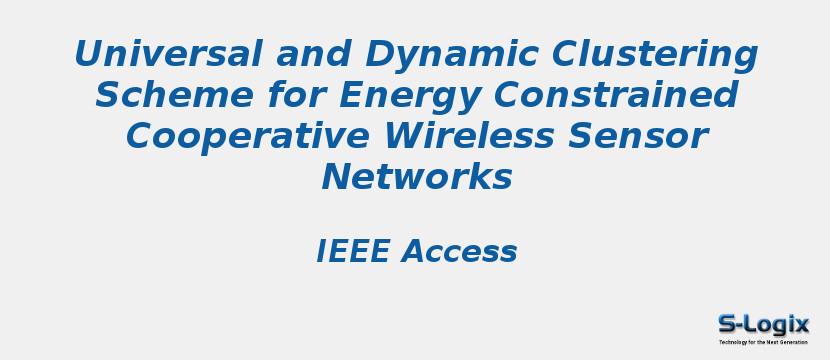Research Area: Wireless Sensor Networks
Energy conservation is considered to be one of the key design challenges within resource constrained wireless sensor networks that leads the researchers to investigate energy efficient protocols with some application specific challenges. Dynamic clustering is generally considered as one of the energy conservation techniques; but unbalanced distribution of cluster heads, highly variable number of sensor nodes in the clusters and high number of sensor nodes involved in event reporting tend to drain out the network energy quickly resulting premature decrease in network lifetime. In this paper, a dynamic and cooperative clustering and neighborhood formation scheme is proposed that is expected to evenly distribute energy demand from the cluster heads and optimize the number of sensor nodes involved in event reporting. Assuming multiple sensors will form a cluster, while responding to an event to report to the fusion center. However, all the sensor nodes are assuming to report the sensing parameters to a cluster-head; which are to be summarized and then report it to fusion center. The transmission of the same event data from multiple sensors within the cluster at different distances with single or multiple antennas to the cluster-head with similar antenna characteristics can be realized as multiple-input multiple-output (MIMO) channel set up as found in the literature. Such realization among clusters of MIMO channel and existence of a feedback channel between the clusters and fusion center is the key of the proposed framework. The dynamic behavior has been adopted within the framework with a proposed index derived from the received measure of the channel quality, which has been attained through the feedback channel from the fusion center. The dynamic property of the proposed framework makes it robust against time-varying behavior of the propagation environment. The proposed framework is independent of the nature of the sensing application, providing with universal behavior.From simulation results, it is observed that the proposed clustering scheme enhances network lifetime by 24.5% and 36% as compared to existing schemes e.g. DDEEC and EDDEEC respectively. Furthermore, it is validated by simulation results that the proposed framework provides a trade-off model between network lifetime and transmission reliability.
Keywords:
Author(s) Name: Muhammad Kamran Naeem,Mohammad Patwary and Mohamed Abdel-Maguid
Journal name: IEEE Access
Conferrence name:
Publisher name: IEEE
DOI: 10.1109/ACCESS.2017.2655345
Volume Information: Volume: 5,Page(s): 12318 - 12337
Paper Link: https://ieeexplore.ieee.org/document/7822956
